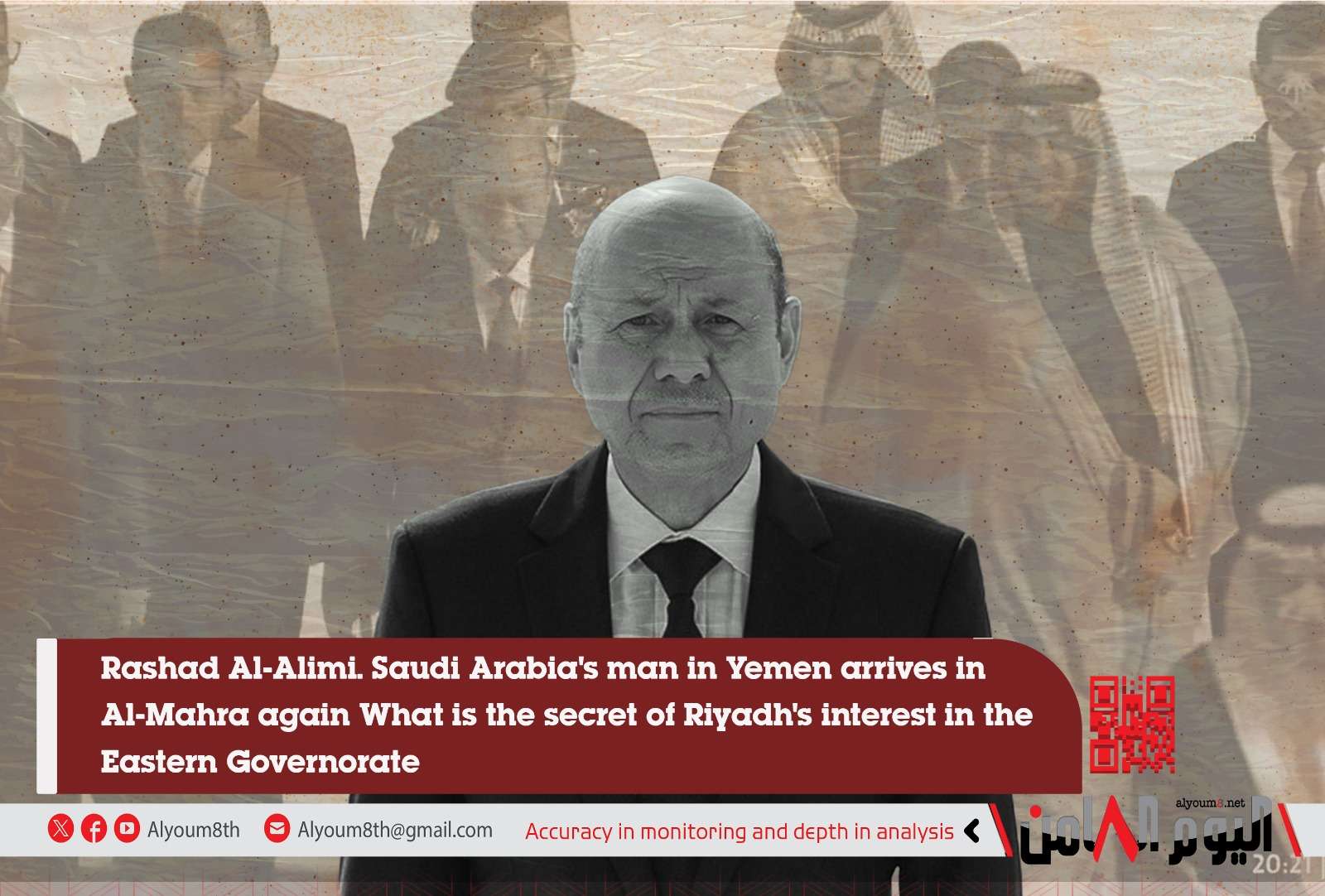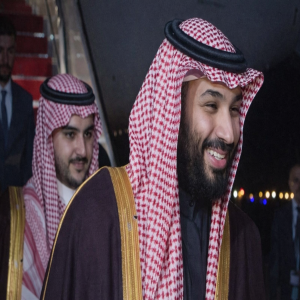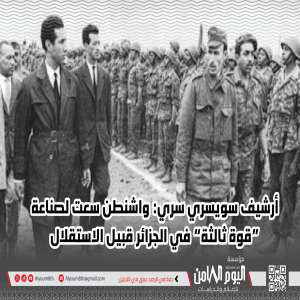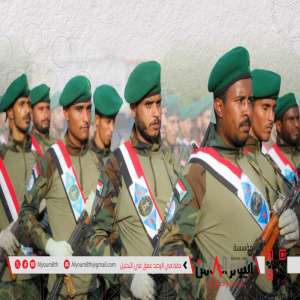Sources for (Alyoum8th) confirm the suspension of the conference on the settlement of the displaced
Rashad Al-Alimi. Saudi Arabia's man in Yemen arrives in Al-Mahra again What is the secret of Riyadh's interest in the Eastern Governorate
For nearly three decades, Saudi Arabia and the Sultanate of Oman have been fighting the race for influence in Al-Mahra and the Hadramawt desert, as Muscat has previously granted some members of the southern tribes' citizenship, as did Riyadh, and the goal is to obtain influence in these strategic provinces in the future for the Southern Transitional Council.

Chairman of the Yemeni Interim Presidential Leadership Council Rashad Al-Alimi – Archive
The Chairman of the Yemeni Interim Presidential Leadership Council, Major General Rashad Al-Alimi, arrived in the city of Al-Ghaydah, the center of Al-Mahra Governorate (828 km east of the capital Aden), in a visit described as an emergency, to support the efforts of the local authority in confronting.
The possible repercussions of tropical cyclone "Tig" that enters the eastern governorates this week, about 70 days after the first visit, when Riyadh pushed its first man to the eastern governorate on August 12, in light of local and regional media talk about Saudi ambitions to dominate the eastern governorates, which are still under military control from the northern Yemeni forces supported by some regional powers.
You can view the report in Arabic here |
Rashad al-Alimi, a former interior minister in the regime of Ali Abdullah Saleh, is known for being behind the brutal repression carried out by the security services against the Southern Movement during the past two decades, not to mention the involvement of his administration in an air strike that missed its targets in the town of Al-Majalah in Abyan and killed dozens of civilians, including 40 women and children in 2009, and southerners view Al-Elaimy as the last man of the old Yemeni regime that was overthrown in the 2011 uprising.
Al-Alimi was wounded along with former Yemeni President Ali Abdullah Saleh in a bombing that the Yemeni Brotherhood is accused of planning in 2011, but he survived the bombing that targeted the Yemeni Presidential House Mosque in Sana'a.
Al-Alimi remained Saleh's ally until he defected from him in 2015, when Saudi Arabia intervened at the head of an Arab coalition to combat Iranian interference in Yemen, and Hadi appointed him as his adviser, until April 7, 2022, when he was appointed head of the interim presidential leadership council, following the removal of President Abd Rabbu Mansour Hadi.
Although Hadi's decision to step down has defined the tasks of the alternative council, through dialogue with the Houthis or the resumption of war efforts, Rashad Al-Alimi headed south, in establishing a separate Yemeni state on the Houthis, but clashing with the southerners who became partners in the government and the Presidential Leadership Council, according to Saudi initiatives to calm down in the south, which witnessed turmoil against the backdrop of the Yemeni Brotherhood's attempt to control the capital, Aden, in late 2019.
It has become clear that Rashad Al-Alimi seeks to settle millions of Yemenis in the southern governorates, which the Southern Transitional Council seeks to re-achieve its independence again on the borders of May 21, 1994, according to the declaration of the failure of the fragile unity with North Yemen in the war launched by the Yemeni regime at the time to control the south and exclude the partners of unity, the "southern regime".
Despite the stated goals of Rashad Al-Alimi's visit to Al-Mahra, "to support the efforts of the local authority to confront tropical cyclone "Tig", it came after the local authorities in Aden refused to hold a conference supported by the "UNHCR", which government sources told Alyoum8th newspaper that it was aimed at achieving a political agenda, including "settling displaced Yemenis, whose number reaches the equivalent of the original residents of the southern governorates," according to government statistics.
Sources in the Southern Transitional Council told Alyoum8th newspaper that the President of the National Assembly – Acting President of the Council – Mr. Ali Al-Kathiri has directed to stop the conference launched by the government of Maeen Abdul Malik in coordination with the Deputy Governor of the capital, "Badr Assistant Saeed Al-Sibai" The newspaper Alyoum8th had published a report entitled "The government of Maeen Abdul Malik seeks to settle the displaced of Yemen in the south in coordination", after obtaining a document issued by Badr Al-Sibai, regarding the participation of the local authority in a workshop that was scheduled to Lasting for ten days, aimed at settling displaced people in southern cities, some political sources believe that they have political goals, including obstructing southern independence efforts, and easing popular pressure on Iranian proxies in Sana'a, which is facing a crisis of failure to pay the salaries of Yemeni employees under its authority.
Political sources ruled out that the link between the visit of Rashad Al-Alimi to Al-Mahra, and the suspension of the workshop for the settlement of displaced people in the cities of the south, but the movements of Rashad Al-Alimi during the past two months, showed a position against the management of the Yemeni file in Saudi Arabia, which is working to brake the efforts of the Southern Transitional Council, aimed at removing the Yemeni military forces from the valley and desert of Hadramawt and Al-Mahra, which are seen by southerners in these governorates "as occupation forces that represent an extension of the regime in 1994."
Saudi Arabia believes that the removal of these forces from the southeastern governorates may hinder strategic projects that Riyadh has been working on since the era of the regime of Ali Abdullah Saleh, and these projects have become sharp differences between Riyadh and Muscat, which also seeks to control Al-Mahra, through local arms in the province that now possess armed formations outside the control of the local authority, and are even opposed to it.
After its intervention in Yemen, Saudi Arabia sent about one thousand five hundred of its forces to Al-Mahra, and the goal is to prevent the smuggling of weapons, missile parts and drones to the Houthis, but those forces did not prevent the smuggling process, which many reports say that a senior official in the local authority - the director of Al-Mahra police Saudi nationality has been involved in the smuggling of weapons and drones to the Houthis -; but the Sultanate of Oman has played and continues to play a role in preparing a political agreement between Saudi Arabia and Iranian proxies in Yemen.
It seems that Riyadh has accepted early Muscat's role in mediating with the armed group that rules Sanaa, translated into a rare visit by Saudi Crown Prince Mohammed bin Salman, who visited the Omani capital in mid-September, which paved the way for a public visit by the Houthis to the Saudi capital, Riyadh, to engage in talks with the Saudis, which appear to be failed talks, as the Houthis returned again to threaten Saudi Arabia by targeting the most important Saudi economic facility, the Aramco giant.
The Saudis say that the Houthis are not serious about peace, and at the same time do not have the ability to resume the war, as the Saudi-Iranian agreement prevents any Houthi attacks on the territory of southern Saudi Arabia, and the one sponsored by China on the tenth of last March remains the guarantor for Saudi Arabia not to target its territory, but a spokesman for the Saudi military forces - Brigadier General Turki Al-Maliki - has accused some Houthi elements of launching repeated attacks by drones and guided missiles on the sites of the Arab coalition forces. on the Saudi-Yemeni border, resulting in deaths and injuries of Bahraini and Yemeni forces stationed on the border.
It seems that the Saudis have reduced these attacks, and the Houthis may want to use these attacks as a pressure card to obtain financial gains, including "reconstruction and reparations," which some sources estimate by "the Houthis' demand for about one billion dollars paid monthly for six months," as compensation for what the war has inflicted on the group.
But what explains the Saudi interest in Al-Mahra, which has become an area of "influence dispute", similar to barter, is the concession of the Saudi heritage in North Yemen since Sana'a was a kingdom before the sixties of the last century, in exchange for obtaining some privileges in Al-Mahra and Hadramawt in coordination with the Sultanate of Oman, or so the visit of the Saudi crown prince to Muscat was explained.
For nearly three decades, Saudi Arabia and the Sultanate of Oman have been fighting the race for influence in Al-Mahra and the Hadramawt desert, as Muscat has previously granted some members of the southern tribes citizenship, as did Riyadh, and the goal is to obtain influence in these strategic provinces in the future for the Southern Transitional Council.
The Sultanate of Oman asked those who granted them citizenship, to stay in Al-Mahra and work to achieve its influence in the governorate, the Saudis do not deny the role of Muscat in providing funds to obstruct the efforts of the leader of the Arab coalition, but Riyadh does not seek to anger Muscat, and the latter moves in Al-Mahra by an arms dealer with Omani nationality, always appears in television interviews, attacking Saudi Arabia and accusing it of occupying Al-Mahra and destroying Yemen, but the Saudi media has never responded to these accusations, but the Saudi presence in Al-Mahra is still It exists, and the Omani arms do not object to it, except in the media, but on the ground, it exists.
Riyadh, which has not hidden its ambitions in Al-Mahra and Hadramawt for decades, is now moving in these provinces in a worrying way for southerners who are surprised that the neighboring kingdom stands against their aspirations to restore their former state, although they did well in the war against the Iranian proxies and were the only factor in expelling the Iranian proxies from all southern cities.
Saudi Arabia is pursuing its strategic project of overlooking the Arabian Sea, but Riyadh knows that this will only be achieved in coordination and consultation with Muscat.
Regional ambitions in an important part of the south are no longer hidden, especially since Riyadh has overseen the formation of regional political entities aimed at opposing the Southern Transitional Council, which is confirmed by Saudi political elites, most notably Suleiman al-Aqili, who spoke to Saudi media about what he called the gains of intervention in the war "gaining influence in Al-Mahra, Hadramawt and Shabwa", which are strategic governorates for the STC.
Riyadh did not hide its desire to establish an oil port in Al-Mahra Governorate, as a southern outlet overlooking the Indian seamstress, away from any Iranian threats that Tehran may pose on the Strait of Hormuz, as the wealthy Kingdom has shown for decades its interest in the strategic southern governorates "Al-Mahra, Hadramawt and Shabwa", which is what Saudi Arabia is talking about naturally "talking about the possibility of annexing these governorates to the Saudi geography"; Or the south, it represents a safe and alternative route for exporting oil.
In August 2019, on the back of the control of the Saudi-backed Yemeni Brotherhood forces, regional media published information stating that there was a request from the Ambassador of the Kingdom of Saudi Arabia to Yemen, Mohammed Al Jaber, for the "Hota" company, for marine works, in which Al Jaber asked the company to provide a study and costs for establishing an oil port in Al-Mahra Governorate, and the company responded to the Saudi ambassador by welcoming and thanking him for the letter and promised to go down to study the project on the ground, but the project did not It is not excluded that there is a ban by the Omanis, but the visit of the Saudi crown prince to Muscat still suggests the existence of understandings, especially since there are also rapprochements with the Houthis, who have a close relationship with the Sultanate of Oman and many of the leaders of the pro-Tehran group reside in Salalah and Muscat.
Through an oil port project and a pipeline passing through Al-Mahra, Riyadh aims to achieve a more important step, which is the construction of a "sea channel", which for the Saudis represents the "project of the century."
Saudi media reported in April 2016 that the kingdom had completed "the procedural steps to study the project of the sea canal, which connects the Arabian Gulf through the kingdom to the Arabian Sea, to circumvent the Strait of Hormuz, enabling the kingdom to transport its oil through this largest artificial water channel in the history of the world's major artificial water canals."
Opening a sea canal from the Arabian Sea through Al-Mahra Governorate to the interior of Saudi Arabia, but the pipeline project remains of urgent importance, so Saudi Arabia may reach an agreement with the Houthis, but the agreement will be in exchange for extending the pipeline and influence in Hadramawt, Al-Mahra and Shabwa, without that, the conflict may remain, even through local proxies, in light of the preoccupation of the world and the region with the Russian-Ukrainian and Israeli-Palestinian conflict, and the Yemen war file going towards "oblivion" or at least deportation until after the liquidation of these files Stuck, important and escalating emergency.



